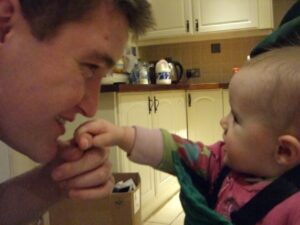 Shane was 22 years old when he broke up with his girlfriend. He found it difficult without her and was prescribed citalopram. He became agitated and rang the doctor four days later, as his tongue felt very swollen (a recognized side effect of citalopram). He left a message but got no response, and five days later he took the remainder of the tablets in an attempted suicide.
Shane was 22 years old when he broke up with his girlfriend. He found it difficult without her and was prescribed citalopram. He became agitated and rang the doctor four days later, as his tongue felt very swollen (a recognized side effect of citalopram). He left a message but got no response, and five days later he took the remainder of the tablets in an attempted suicide.
His mother brought him back to the clinic where he saw a different doctor who continued the prescription for citalopram.
Ten days later, Shane called his ex-girlfriend, who was in her new boyfriend’s house, and asked her to send her boyfriend outside, as Shane was hurt and needed help. Shane stabbed the boyfriend fatally and also stabbed his ex-girlfriend and her boyfriend’s brother who emerged from the house to find out what was going on. Shane was later found dead in the garden having stabbed himself about 20 times.
The case was all over the media for several days and every scrap of evidence that pointed to pre-meditation was a nail in Shane’s coffin. At first there was no mention of antidepressants, but Leonie Fennell, Shane’s mother, feeling guilty for having engineered her son onto citalopram, raised the issue. The Irish College of Psychiatrists responded that there was absolutely no evidence that antidepressants could cause problems and to say so was dangerous and irresponsible.
Before the inquest, an extraordinary letter to the national newspapers was sent from all professors of psychiatry in Ireland (or so they said), stating that there was no evidence that antidepressants could cause harm.
The jurors were asked to recommend whether the verdict should be suicide or an open verdict. An open verdict means that there is no clear evidence that the act was planned, but could, for example, have happened under the influence of a substance like LSD. In European countries, an open verdict is not an initial step to suing a pharmaceutical company, as it is almost impossible to sue a pharmaceutical company in Europe.
Returning an open verdict in England or Ireland does not blame the drug. It simply means in this case that the jurors have decided that the killings and the events did not permit a straightforward answer. But even so, the pharmaceutical companies sent academics such as Professor Guy Goodwin from Oxford, along with several high-powered lawyers to ensure the coroner or the jury would return a suicide verdict. It didn’t. David Healy provided expert testimony and the jury returned an open verdict.
Just like the American Psychiatric Association (APA) before and since, The Irish College of Psychiatrists went into overdrive issuing statements left, right, and centre that there was no evidence that citalopram could cause suicide or violence. This led a retired professor of psychiatry, Tom Fahy, send this letter to the Irish College:
“I am afraid the College is plain wrong. There is no such thing as a college statement which is circulated to the membership simultaneous with its publication, without opportunity for comment or vote and ‘in unison’ with a body 100% financed by drug companies, and with personal hostile references to expert testimony at an inquest with families still in grief. And this on the heels of a dreadful multiprofessorial letter even before the inquest began. Extraordinary and outside my experience. If I were not retired I’d dissociate and publicly resign.”